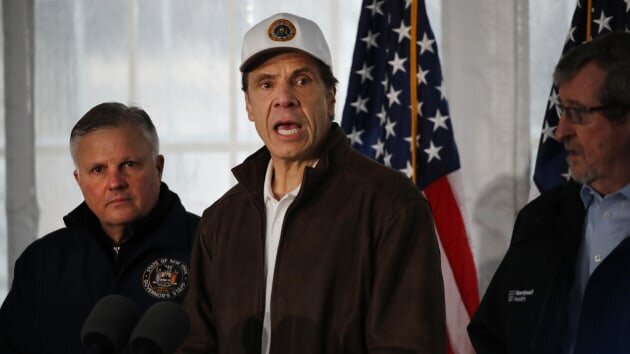Coronavirus crisis illuminates the importance of society and government By Luke Perry
America’s current embrace of social distancing begs the question of why people formed societies and why they have endured as a defining feature of human life. The answer is simple: pooling resources enhances survival more than living alone.
This is often lost in our political culture of individualism and limited government, which intensified during the 1980s as the predominant ideological division became the role of government in society.
In times of national crisis, Americans across the ideological spectrum have looked to government for swift and comprehensive responses to extraordinary challenges, from the Great Depression and the New Deal to 9-11 and the War on Terror.
So far, this crisis has been no different.
In recent weeks, Congress allocated $8 billion to help create a COVID-19 vaccine and support states/localities, then developed a second $850 billion bill to provide free coronavirus testing, paid leave, and bolster food assistance and unemployment insurance. The White House is working on a third bill allocating over $1 trillion in economic stimulus, including direct payments to U.S. citizens.
Observers will rightly evaluate the policy wisdom of these actions. Still, such extraordinary and bipartisan measures reflect the basic purpose of government: to promote order, security, and the general welfare of citizens.
Being safe and well are universal aspirations that illuminate the clear necessity of governance in addressing major societal challenges, however jaded we may become in this era of hyperpartisanship.
Simply put, no other entity in U.S. society has the capacity or resources to “flatten the curve” of this global pandemic and address its economic implications.
I believe this is worth recognizing as someone who routinely teaches students that government is very important and deeply involved in your life, whether you like it or not.
Photo by Spencer Platt/Getty
Large majorities of Americans are worried about being exposed to the coronavirus and confident in the government’s ability to respond. The latter is a testament to the stability and promise of our political system, however flawed it might be.
Confidence is strongest with public health experts and state/local governments, both of whom garner over 70 percent support. This speaks to our belief in the importance of subject matter experts and the tireless work of our dedicated public servant friends and neighbors on the front lines.
For better, and worse, governments are highly reactive. U.S. government is now responding forcefully at all levels. The bad news is how much death and suffering result from a lack of forethought and time wasted.
Most Americans believe the worst is yet to come. As we increasingly isolate ourselves, and we should, the great irony is that our collective organization, society and government, exponentially advances the prospects for our survival.
Luke Perry (@PolSciLukePerry) is Professor of Government at Utica College







